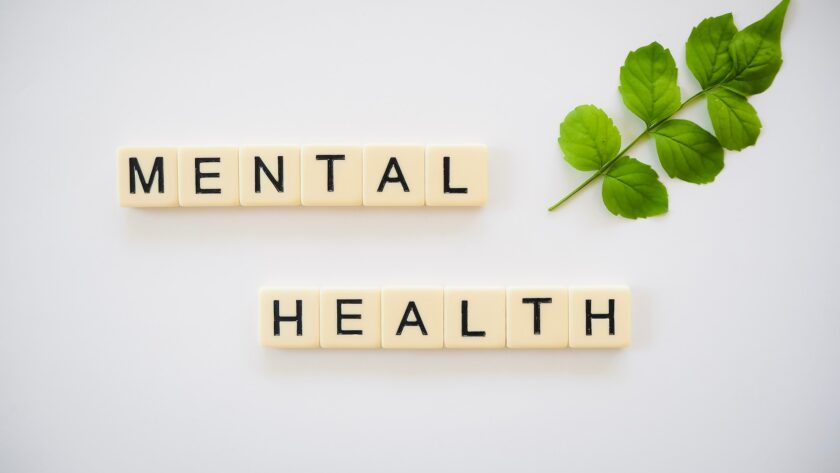How does your mental health affect your overall well-being? This question has been asked over time again and again, yet the answer remains elusive for many. However, one thing is sure: body and mind are intimately connected, and your mental health can significantly impact your physical health and overall quality of life.
The WHO defines mental health as “a state of well-being in which an individual realizes his or her abilities, can cope with the normal stresses of life, can work productively, and can make a contribution to his or her community.” Simply put, mental health encompasses your emotional, psychological, and social well-being, affecting how you think, feel, and act daily.
This article will explore the intricate relationship between mental health and overall well-being. Join us as we uncover the crucial link between mental health and general well-being, backed by the insights of top experts in the field.
Contents
Emotional Stability
Emotional stability is a crucial component of good mental health that affects overall well-being. When you are emotionally stable, you’re better equipped to handle stress, anxiety, and depression, which can significantly impact your quality of life. Emotional stability can be improved through various methods such as therapy at nearby clinics like Serenity Mental Health Centers, as well as regular exercise, and mindfulness practices.
Learning to manage and cope with different emotions can enhance your mental resilience and help you experience greater happiness and fulfillment.
Physical Health
The relationship between mental and physical health is bi-directional, and an imbalance in one can significantly impact the other. People with mental health concerns are at a higher risk of developing physical health problems, such as cardiovascular disease, obesity, and chronic pain. Conversely, chronic physical health conditions can increase the risk of mental health problems like depression and anxiety. Regular exercise, a healthy diet, and quality sleep are essential to improve psychological and physical health. You could also consider supplementing your diet where you feel you need a bit of extra help to get the nutrition you need. If, for example, you need protein, this review here of one option out there might be a good starting point in your research to find something that is going to work for you.
These lifestyle choices can reduce stress, improve mood, increase energy, and promote well-being. Caring for your physical health can enhance your mental health and lead fulfilling lives.
Self-Esteem
It plays a critical role in our mental health and overall well-being. Individuals with high self-esteem are more likely to have positive mental health outcomes, such as increased resilience and coping skills. Conversely, individuals with low self-esteem may struggle with depression, anxiety, and other mental health issues.
Therapy, self-care, and TRT treatment can all help improve self-esteem. TRT treatment options, such as hormone replacement therapy, can benefit individuals with low self-esteem due to hormonal imbalances. But make sure you get this treatment from an experienced team.
Individuals can improve their mental health and overall well-being by addressing the root causes of low self-esteem and learning to build confidence and self-worth.
Cognitive Function
Cognitive function is a critical aspect of our mental health and overall well-being. It includes our ability to think, reason, learn, and remember information. Poor mental health can significantly impact cognitive function, making concentrating, learning, and remembering things harder.
Individuals with mental health issues may also experience cognitive symptoms such as brain fog, confusion, and forgetfulness. Therapy, cognitive behavioral therapy nyc (or one near you), and medication can all help improve cognitive function and overall well-being.
These treatments can help individuals learn coping strategies, improve their problem-solving skills, and reduce symptoms of anxiety and depression that can negatively impact cognitive function.
Professional Life
Mental health issues can negatively impact work performance, including decreased productivity, poor time management, and absenteeism. Poor mental health can also lead to job dissatisfaction and burnout. Seeking support through therapy, self-care, and medication can help improve mental health and work outcomes. Employers can also support employees’ mental health by providing resources and promoting a healthy work-life balance.
By addressing mental health in the workplace, individuals can thrive professionally and experience greater job satisfaction and success.
Daily Functioning
Mental health affects our ability to function daily, impacting our work, relationships, and overall quality of life. Individuals with mental health issues may struggle with everyday tasks such as self-care, communication, and decision-making. Seeking support through therapy, medication, and self-care can help individuals improve their mental health and daily functioning. Developing coping strategies and building resilience can help individuals manage symptoms and lead fulfilling lives.
By addressing mental health concerns and developing healthy habits, individuals can improve their daily functioning and enjoy a higher quality of life.
Last Words
Mental health is a crucial aspect of overall well-being that affects various areas of our lives. By prioritizing mental health and addressing mental health concerns, individuals can enjoy improved physical health, higher self-esteem, better cognitive function, greater success in their professional lives, and improved daily functioning.
Ultimately, investing in our mental health is vital to achieving a happier and healthier life.




